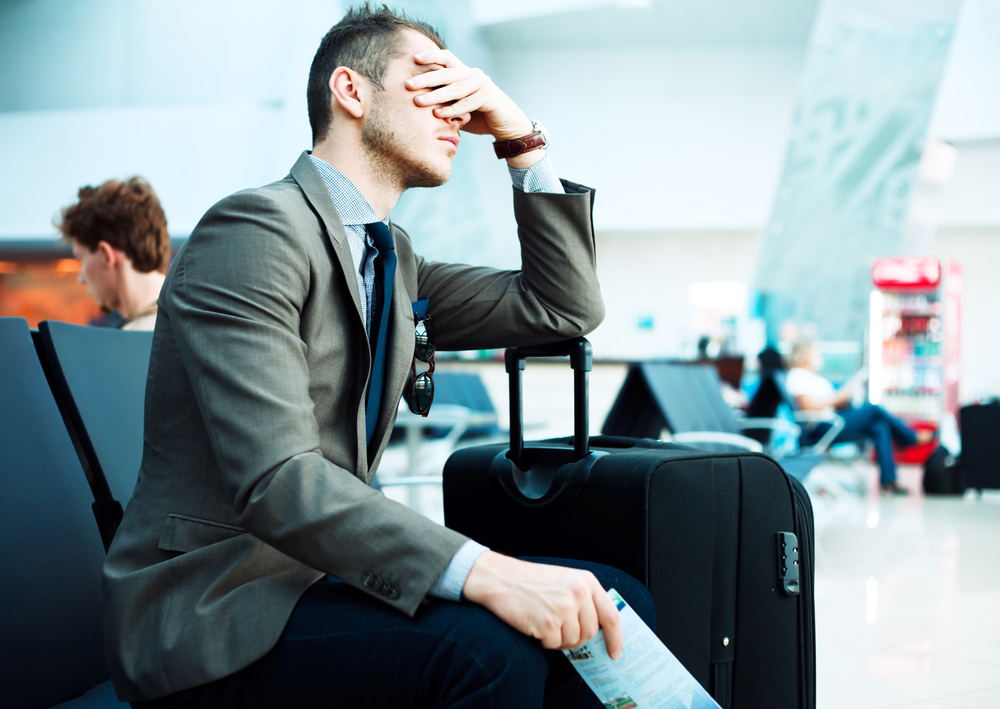Dr. David Dao became a social media sensation — and United Airlines the public enemy du jour — in April when cell phone video captured aviation officers dragging him off a jet to make room for four airline employees.
As the public struggled to understand how the incident escalated to violence, speculation mounted Dao would file suit against the airline. That prediction came true April 24, when Thomas Demetrio, lawyer and partner of Chicago-based Corboy & Demetrio, confirmed his client will indeed sue. Three days later, Demetrio announced that Dao and United had reached a settlement with confidential terms, abruptly bringing the case to a close before it ever got started.
Despite the case’s high profile, it is one of very few aviation lawsuits that have stemmed from overbooking. Of the small number of airline-related cases, most involve discrimination, product liability, crash-related wrongful death claims, or, in one collective blow, antitrust actions. (In 2015, two groups of passengers and more individuals sued the major domestic carriers in response to the U.S. Department of Transportation’s investigation into alleged collusion between the groups to keep airline ticket prices high.
In April 2013, two African-American passengers, MacCraig Warren and Miles Warren, sued US Airways after airline personnel told them to change out of their hoodies and jeans before boarding a first-class flight from Denver to Los Angeles. Two other first-class passengers were wearing the same attire.
Another discrimination claim was resolved in March 2012, when Delta Air Lines/Freedom settled with a breast-feeding mom who was removed from a flight for nursing her child. Other passengers have sued for injuries sustained from getting hit in the head with luggage, slipping and falling on the tarmac, and for getting scalded by a spilled cup of hot tea.
Such cases are exceedingly rare, even if they do make for interesting news stories. According to a U.S. Department of Transportation Air Travel Consumer Report, in January 2017, United received 174 total customer complaints, 90 of them related to flight problems and baggage issues. Only eight related to overbooking and two related to discrimination. Of the major carriers, Hawaiian fared best with only 11 total complaints that month, with zero oversales or discrimination complaints.
Problems from overbooking in themselves are also rare, affecting less than one percent of passengers. The DOT’s report states that in 2016, United authorized 3,765 involuntary denied boardings out of nearly 87 million total passengers, a ratio of 0.43 passengers for every 10,000. Southwest had one of the highest ratios of involuntary denied boardings, booting off nearly 15,000 out of a total of 150.6 million. That’s 1 passenger for every 10,000.
The odds of getting forcibly removed from a plane or sustaining a concussion from falling luggage are slim. And when such incidents happen, in most cases, the airline’s contract of carriage—a contract of adhesion—protects them from liability.
“It’s not the same time, day, or month; it’s just what they can do. The airlines write these contracts of carriage so loosely that basically they can wriggle out of anything.”
Contracts of carriage define the rights, duties, and liabilities of the airline and passenger. Terms generally include the following:
- Limits on liability for delay and damage or loss of baggage.
- Claims restrictions, such as the time period under which a passenger can file a claim or bring action against the airline.
- Reservation rules.
- Limits on liability for delay or failure to perform service, schedule changes, and rerouting.
The U.S. Department of Transportation mandates certain sections of contracts of carriage. This includes terms around involuntary denied boarding. The airline must try to put the passenger on the next available flight, either on the same airline or a different airline. In most contracts, the airline agrees to provide hotel accommodation when necessary. If the airline can’t get the passenger to his or her destination within an appropriate time, the airline agrees to pay up to $675 or $1,350 depending on whether the details of the “qualifying alternative transportation.”
Once we pay the fare and board the plane, the airline must provide passengers “the highest duty of care.” In a nutshell, that means “the airline must transport the passenger safely to their destination,” says Ladd Sanger, managing partner of Slack & Davis’s Dallas office, who focuses his practice on air crash litigation and product liability matters. If an airline pilot flies despite reports of a horrendous snowstorm, and causes an accident, for example, the pilot may be negligent and the airline held vicariously liable.
Personal injury claims, such as a slip on the tarmac or a shoulder injury from a fallen bag, may be pre-empted under The Airline Deregulation Act. Claims related to “rates, routes, and services” are preempted under the Act. Claims related to “operations and maintenance” are not preempted under the Act pursuant to Hodges v. Delta Airlines Inc., 44 F.3d 334 (5th Cir. 1995).
“If you want bring a discrimination claim, you may have a preemption issue,” says Sanger. “If a pilot forgets to put the wheels down, that’s not related to rates, routes, or services, so you may have a case. If a flight attendant drops a bag on your head, or if you hit turbulence and the latch doesn’t function properly, you may have a case.”
As with most personal injury claims, whether a passenger has a valid claim depends on the facts of the case, the scope of the injuries, and the amount of damages. “The average passenger doesn’t have the ability to evaluate a case because it’s so fact-intensive,” says Sanger. “If you have significant damages, you need to talk to someone that can help you navigate the system.”
This is especially true if a passenger experiences problems when flying overseas. Under the Montreal Convention, which governs international flights, airlines are strictly liable for up to 100,000 special drawing rights (SDR), which is a mix of currency values established by the International Monetary Fund. The Montreal Convention also mandates different compensation rates for lost baggage and delayed flights under certain circumstances.
Short of filing a lawsuit, which may very well get tossed due to federal preemption or the contract of carriage, how can passenger protect their rights?
“Always file a complaint with the Department of Transportation if something happens,” says Leocha. “That’s the only way the airlines will take action. If you have a policy issue, DOT will deal with it themselves. If it’s a service issue, they will forward the complaint to airline. That airline has to get back to you within 30 days.”
For its part, United Airlines had earlier on April 27 announced changes to its policies and procedures in addition to reaching a settlement with Dao. United states it will limit law enforcement use to safety and security issues only. It will no longer require seated passengers to give up their seat involuntarily unless safety or security is at risk. It will also increase customer compensation incentives for voluntary denied boarding to up to $10,000.
“The headline is clear: our policies got in the way of our values, and procedures interfered in doing what’s right,” United CEO Oscar Munoz acknowledges in the statement. “Our customers should be at the center of everything we do and these changes are just the beginning of how we will earn back their trust.”







2 Comments
Very great information can be found on web site. “Time discovers truth.” by Lucius Annaeus Seneca.
Very nice post and right to the point. I don’t know if this is truly the best place to ask but do you guys have any ideea where to get some professional writers? Thank you 🙂